Unix
Ken Thompson and Dennis Ritchie create the Unix operating system at AT&T's Bell Labs. It's not open source, but they make the source code available. Unix was unique because of its portability and multitasking capabilities. Since the system’s inception, a multitude of different UNIX versions have been collaboratively developed — to run workstations, internet servers, and mainframes.
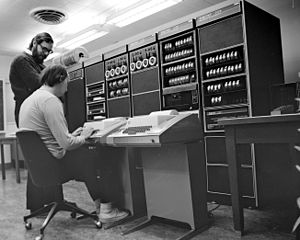
Unix System V
In 1983, the U.S. Department of Justice settled its second antitrust case against AT&T, causing the breakup of the Bell System. This relieved AT&T of the 1956 consent decree that had prevented the company from commercializing Unix. AT&T promptly introduced Unix System V into the market. The newly created competition nearly destroyed the long-term viability of Unix, because it stifled the free exchanging of source code and led to fragmentation and incompatibility. Since the newer commercial UNIX licensing terms were not as favorable for academic use as the older versions of Unix, the Berkeley researchers continued to develop BSD as an alternative to UNIX System III and V.
MINIX
In 1987, MINIX, a Unix-like system intended for academic use, was released by Andrew S. Tanenbaum to exemplify the principles conveyed in his textbook, Operating Systems: Design and Implementation. While source code for the system was available, modification and redistribution were restricted. In addition, MINIX's 16-bit design was not well adapted to the 32-bit features of the increasingly cheap and popular Intel 386 architecture for personal computers.
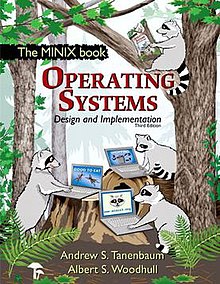
Linux Announced
On August 25, 1991, Linus Torvalds, then a 21-year-old university student from Finland, announced a project on the comp.os.minix user group:
"Hello everybody out there using minix - I'm doing a (free) operating system (just a hobby, won't be big and professional like gnu) for 386(486) AT clones. This has been brewing since april, and is starting to get ready. I'd like any feedback on things people like/dislike in minix, as my OS resembles it somewhat (same physical layout of the file-system (due to practical reasons) among other things)".
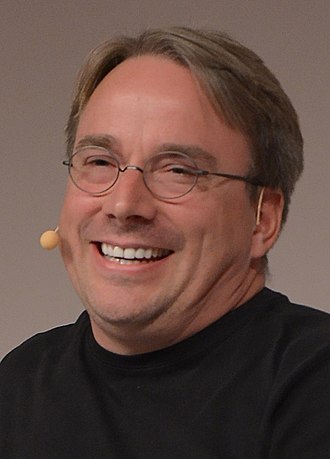
Linux Released
The official public release (version 0.0.2) of Linux happened on October 5, 1991. The initial release (version 0.0.1) was created a few weeks before, on September 17, 1991.
Linux adopts GPL
In January 1992, Linux adopted the GNU GPLv2 license.
Linux Newsgroup
The first Linux newsgroup, comp.os.linux, is proposed and started by Ari Lemmke.
Linux supports GUI
Orest Zborowski ported the X Window System to Linux in 1992, which allowed graphical user interface (GUI) support for the very first time.
S.u.S.E
S.u.S.E. was founded by Roland Dyroff, Thomas Fehr, Burchard Steinbild and Hubert Mantel in September 1992. S.u.S.E. is a German acronym for "Software und System-Entwicklung" (Software and Systems Development). S.u.S.E. became the world’s first provider of an Enterprise Linux distribution.

Red Hat
Bob Young founded ACC Corporation in March 1993 and the company was later renamed to Red Hat Software when merged with Marc Ewing's business.
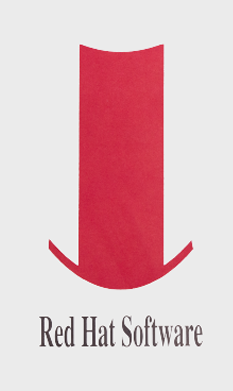
Slackware
Slackware, by Patrick Volkerding, becomes the first commercial standalone distribution and quickly becomes popular within the Linux community.

Debian
Debian GNU/Linux was created by Ian Murdock in August 1993. This Linux distribution was committed to the GNU and FSF principles of free software. The Debian developers' principles are expressed in the Debian Social Contract.

Debian Package
Ian Murdock wrote a shell script called “dpkg” to solve the issue of software installation, removal, and updates.
Linux Journal
The first issue of Linux Journal is published. This issue featured an interview with Linus Torvalds and articles written by Phil Hughes, Robert "Bob" Young, Michael K. Johnson, Arnold Robbins, Matt Welsh, Ian A. Murdock, Frank B. Brokken, K. Kubat, Micahel Kraehe and Bernie Thompson.
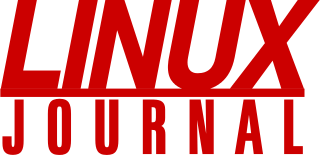
Linux 1.0 released
In March 1994, Linux 1.0 was released. It was the first version suitable for use in production environments. This release only supported single-processor i386-based computer systems.
Linux International
Linux International, a nonprofit vendor organization, is founded by Jon "maddog'" Hall. Linux International goes on to become a major contributor to the success of Linux, helping corporations and others work toward the promotion of the Linux operating system. The organization helped Linus to win the Linux trademark (now owned by the Linux Foundation).
BusyBox
BusyBox was created by Bruce Perens and initially aimed to put a complete bootable system on a single floppy disk that would serve both as a rescue disk and as an installer for the Debian distribution. Since that time, it has been extended to become the de facto standard core user space toolset for embedded Linux devices and Linux distribution installers.
Linux Expo
Linux Expo, the first Linux-specific tradeshow and conference series, launches, thanks to the folks at North Carolina State University and in particular, Donnie Barnes. Speakers include Marc Ewing, Rik Faith and Michael K. Johnson, among others.
Apache httpd
A small group of webmasters known as the Apache Group came together with the goal of releasing a common distribution based on multiple "patches" to the NCSA HTTPd Server. The first official public release (0.6.2) of the Apache web server was on April 1995.

MySQL
MySQL launched by Michael Widenius.
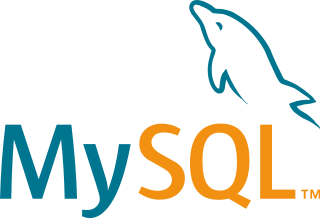
PHP
Originally created by Rasmus Lerdorf in 1994, PHP was released publicly on June 1995.

Tux
Torvalds announced in 1996 that there would be a mascot for Linux, a penguin. This was because when they were about to select the mascot, Torvalds mentioned he was bitten by a little penguin on a visit to the National Zoo & Aquarium in Canberra, Australia. Larry Ewing provided the original draft of today's well known mascot based on this description. The name Tux was suggested by James Hughes as derivative of Torvalds' UniX, along with being short for tuxedo, a type of suit with color similar to that of a penguin.

KDE Desktop Environment
KDE (originally named the Kool Desktop Environment) was founded in 1996 by Matthias Ettrich, who was then a student at the Eberhard Karls University of Tübingen.
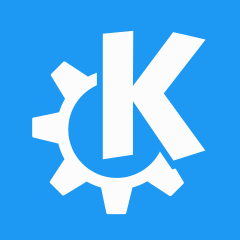
Red Hat Package Manager
Erik Troan and Marc Ewing launch RPM (Red Hat Package Manager) in 1997. Although it was created for use in Red Hat Linux, RPM is now used in many Linux distributions such as Fedora, CentOS, OpenSUSE, OpenMandriva and Oracle Linux.
Software in the Public Interest
Software in the Public Interest, a non-profit organization, is formed to serve as a fiscal host for the Debian Project. It was founded by Bruce Perens.
GNOME
GNOME was started on August 15, 1997 by Miguel de Icaza and Federico Mena as a free software project to develop a desktop environment and application ecosystem using a completely open source widget toolkit, the GIMP Toolkit (GTK).

LinuxWorld Conference and Expo
The first LinuxWorld Conference and Expo is held in San Jose, California. It was a huge success, with 12,000 participants.
Advanced Packaging Tool
Debian launches Advanced Packaging Tool (APT), a package management tool built on top of dpkg.
Linux Professional Institute
The Linux Professional Institute (LPI) is a non-profit organization founded on October 25, 1999 and oriented towards certifications for Linux, BSD and open source software based technologies.

SourceForge
VA Software releases SourceForge, the first provider of a centralized location for free and open-source software developers to control and manage software development and offering this service without charge.
freedesktop.org
freedesktop.org, formerly known as the X Desktop Group, is founded by Havoc Pennington. The goal is to work on interoperability and shared base technology for free-software desktop environments for the X Window System (X11) and Wayland on Linux and other Unix-like operating systems.
OpenOffice
Sun Microsystems acquires StarOffice in 1999 for US$73.5 million, as it was supposedly cheaper than 42,000 licenses of Microsoft Office. Sun offered StarOffice as a free download for personal use. In July 2000, Sun open-sourced the OpenOffice suite as a competitor to Microsoft Office.
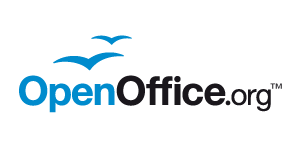
Gentoo
Gentoo Linux was initially created by Daniel Robbins as the Enoch Linux distribution. The goal was to create a distribution without precompiled binaries that was tuned to the hardware and only included required programs.
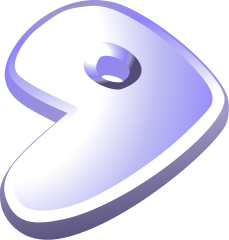
Open Source Development Labs
Open Source Development Labs (OSDL) was founded in 2000. This non-profit organization supported by a global consortium was tasked to "accelerate the deployment of Linux for enterprise computing." It sponsored key projects and people, including Linus Torvalds and Andrew Morton.
Qt under GPL
In 2000, Trolltech releases the Qt library under the GPL v2, ending all controversy regarding GPL compatibility. This was important because the K Desktop Environment was becoming one of the leading desktop environments for Linux.
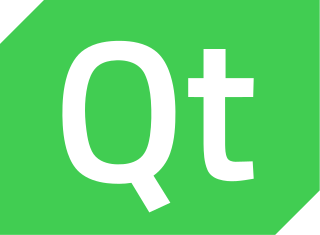
Knoppix
Knoppix is an operating system based on Debian created by Klaus Knopper designed to be run directly from a CD/DVD (Live CD) or a USB flash drive (Live USB), one of the first of its kind for any operating system.
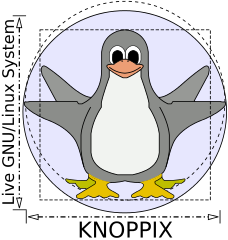
Linux Foundation
The Linux Foundation is a non-profit technology consortium founded in 2000 as a merger between Open Source Development Labs and the Free Standards Group to standardize Linux, support its growth, and promote its commercial adoption. It also hosts and promotes the collaborative development of open source software projects.
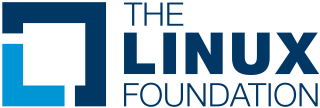
SCO v. IBM
The SCO Group, a proprietary Unix vendor and former Linux distribution vendor, filed a $1 billion lawsuit in the United States against IBM for allegedly copying inappropriately UNIX intellectual property into the Linux kernel. Several related lawsuits and countersuits followed.
The blog Groklaw was one of the most forensic examiners of SCO's claims and related events, and gained its popularity from covering this material for many years.
Fedora
Warren Togami began Fedora Linux in 2002 as an undergraduate project at the University of Hawaii, intended to provide a single repository for well-tested third-party software packages so that non-Red Hat software would be easier to find, develop, and use. The key difference between Fedora Linux and Red Hat Linux was that Fedora's repository development would be collaborative with the global volunteer community. Fedora Linux was launched in 2003, when Red Hat Linux was discontinued in favor of Red Hat Enterprise Linux (RHEL).

X.Org Foundation
The X.Org Foundation was founded in January 2004. It came into being when the body that oversaw X standards and published the official reference implementation joined forces with former XFree86 developers.

Ubuntu and Canonical
Mark Shuttleworth gathers a group of Linux developers to create Ubuntu, a user-friendly Linux Distribution based on Debian. Canonical is founded to market commercial support and related services for Ubuntu.

CentOS
The CentOS Project was born as a merge of two popular RHEL (Red Hat Enterprise Linux) clones: CAOS Linux from Gregory Kurtzer and Tao Linux from David Parsley.

Firefox
Firefox began as an experimental branch of the Mozilla project by Dave Hyatt, Joe Hewitt, and Blake Ross in 2002. To combat what they saw as the Mozilla Suite's software bloat, they created a stand-alone browser, first named Phoenix, later Firebird, and finally Firefox. Firefox version 1.0 was released on November 9, 2004. Firefox's speed, usability, and marketing helped it gain market share against Internet Explorer. Within five years of launching, Firefox accounted for nearly a third of all web browsing.

Git
Git, distributed version control system, was created by Linus Torvalds in 2005 for development of the Linux kernel. Since 2005, Junio Hamano has been the core maintainer.

Google acquires Android
Google acquired Android in July 2005 for at least $50 million. Two years after the sale, Google announced the Open Handset Alliance. In September 2008, Google released the first version of Android as open source.

Open Invention Network
Open Invention Network (OIN) was founded on November 10, 2005 by IBM, Novell, Philips, Red Hat, and Sony. NEC subsequently became a Member. OIN's goal is to support freedom of action in Linux as a key element of open source software by creating a patent non-aggression community.
Yahoo! releases Hadoop
Doug Cutting and Mike Cafarella released Hadoop on April 1, 2006. Hadoop provides a software framework for distributed storage and processing of big data using the MapReduce programming model. Hadoop was born at Yahoo! as a pioneering open-source project.

Linux Mint
The Linux Mint project was created by Clément Lefèbvre as a community-driven Linux distribution based on Ubuntu.

Wayland
Kristian Høgsberg, a Linux graphics and X.Org developer, started Wayland as a spare-time project in 2008 while working for Red Hat.
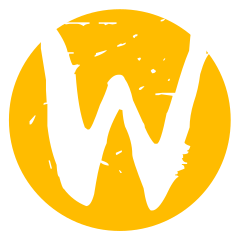
Node.js
Node.js was initially developed by Ryan Dahl in March 2009 based on Google's open source V8 JavaScript engine. It paved way to the use of JavaScript on Web servers. Node.js functions are non-blocking, allowing the server to handle a high load of concurrent connections. It represents a 'JavaScript everywhere' paradigm, unifying web-application development around a single programming language.

Docker
Docker Inc. was founded by Solomon Hykes and Sebastien Pahl in 2010. Docker was released as open-source in March 2013. At the time, it used LXC as its default execution environment.

LibreOffice
On 28 September 2010, The Document Foundation was announced as the host of LibreOffice, a new derivative of OpenOffice.org. The Document Foundation's initial announcement stated their concerns that Oracle would either discontinue OpenOffice.org, or place restrictions on it as an open source project.

Rackspace releases OpenStack
OpenStack began in 2010 as a joint project of Rackspace Hosting and NASA. As of 2012, it was managed by the OpenStack Foundation, a non-profit corporate entity established in September 2012.

Chrome OS
Chrome OS is a Gentoo Linux-based operating system designed by Google. It is derived from the free software Chromium OS and uses the Google Chrome web browser as its principal user interface.
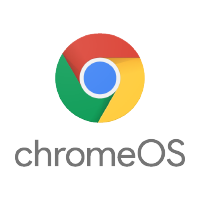
Google releases Kubernetes
Kubernetes is released as open source software. It was originally designed by Google based on the Borg project. Kubernetes is a container-orchestration system for automating application deployment, scaling, and management.
